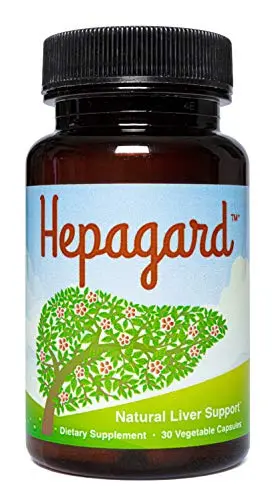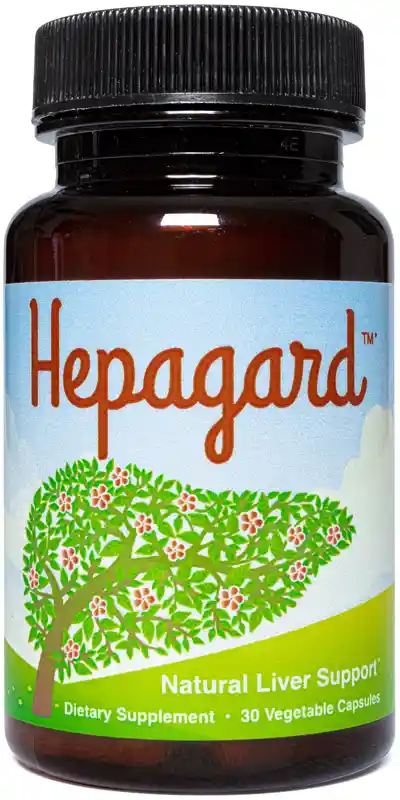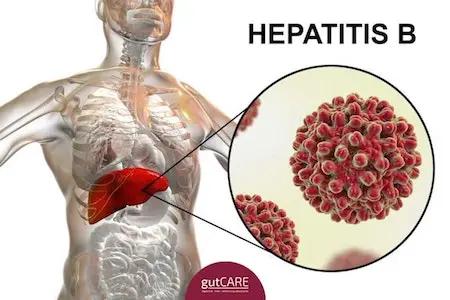What Is Hepagard Tablet For Liver?
The active ingredient of the medicine is Entecavir.
HHepagard 0.5 mg Film-Coated Tablet is an antiviral (fighting against viruses) drug that prevents the multiplication of hepatitis B viruses.
It is used in the treatment of HBV – hepatitis B (liver inflammation) virus infection in adults.
It reduces the number of viruses in the body and improves the condition of the liver.

What Will We Learn?
Things to Know About Hepagard 0.5 mg Tablets
- 1. If you are allergic to the active ingredient of medicine, it is not recommended to use this medicine.
- If you have previously had HIV infection or have untreated HIV or AIDS, or if you have kidney disease, liver disease or liver transplant, tell your doctor before using this medicine. You may need dose adjustments and specific tests to use your medicine safely.
- Some people have developed lactic acidosis during the use of this medicine.
- Its use can lead to serious kidney problems. This may be more common, especially if you have kidney disease or take medications that reduce your kidney function.
- You should have your liver functions checked by your doctor for a few months after you stop taking the medicine. Symptoms may develop in the liver even months later.
- To be sure that the medicine is improving your condition, blood tests are required at regular intervals. Also, have your liver and kidney functions checked.
- You should use your medicine regularly without skipping. Have your doctor prescribe it again before it is completely finished.
- The use of the medicine will not prevent the transmission of hepatitis B to other people. Therefore, avoid unprotected sexual intercourse and do not share needles, razors or toothbrushes with those around you.
- It should not be used in patients younger than 16 years of age.
- Do not use during pregnancy and lactation without consulting your doctor.
- This medicine has been prescribed for you personally, do not give it to others.
- During the use of this medicine, tell your doctor that you are using this medicine when you go to the doctor or hospital.
- Do not use high or low doses other than the dose recommended to you about the medicine.
Please consult your doctor if these warnings apply to you, even at any time in the past.

How is Hepagard Used?
Take Hepagard medicine with a full glass of water.
It is recommended to take on an empty stomach 2 hours before or 2 hours after a meal.
You should use this medicine exactly as your doctor has prescribed it.
Please follow your doctor’s instructions during the treatment.
The usual dose of this medicine is 0.5 mg and 1 mg once a day.
What Are The Side Effects Of Hepagard Tablet?
In the use of Hepagard Tablets, side effects such as nausea, vomiting, indigestion, diarrhea, headache, insomnia, drowsiness, elevated liver enzymes, abdominal pain, difficulty in breathing, hives, swelling of the face, lips, tongue and throat may occur.
If you see any side effects in the use of Hepagard tablets, inform your doctor without waiting.
Pregnancy
Hepagard should not be used during pregnancy unless absolutely necessary.
Your doctor will talk about the potential risks of using Hepagard during pregnancy.
It has not been proven to be safe for use during pregnancy.
Both men and women taking Hepagard should be advised to use effective methods of contraception throughout the treatment period.
Breast-feeding
Do not use Hepagard if you are breastfeeding, because it is not known whether the active substance of the medicine passes into your milk.
How is Hepatitis B Virus Treated?

Hepatitis B is a serious liver infection caused by the hepatitis B virus (HBV).
It spreads when the blood of someone with the hepatitis B virus comes into contact with open wounds or bodily fluids.
HBV is one of the five types of viral hepatitis.
Others are hepatitis A, C, D, and E.
Each is a different type of virus, and types B and C are most likely to be chronic.
Pregnant women with hepatitis B can also transmit the virus to their babies, usually at the time of birth
People who are not infected with HBV can be vaccinated against the virus to prevent infection.
There are two stages of hepatitis B infection: acute and chronic.
Acute means a new infection that is less than six months old; An HBV infection that lasts longer than six months is chronic.
Acute hepatitis B resolves on its own without serious complications in most newly infected teens and adults.
When this happens, they are no longer contagious and become immune to other HBV infections.
However, in people whose infection does not clear up, HBV can be transmitted to others.
Chronic hepatitis B can cause fibrosis (mild to moderate liver scarring), cirrhosis (severe liver scarring), liver cancer, liver failure, and death.
The risk of hepatitis B infection becoming chronic varies with age at the time of infection.
Hepatitis B is not transmitted by eating from the same container, consuming common food or water, breastfeeding, hugging, kissing, shaking hands, coughing, sneezing, using the same toilet, swimming in the pool, playing with toys, traveling in the same vehicle.
What Foods Are Good For The Liver?
The liver, one of the largest organs, has vital tasks such as absorbing vitamins and minerals taken with food and cleaning harmful substances in the body.
Regular use of alcohol and consumption of excessively fatty foods can lead to liver diseases such as fatty liver, hepatitis and cirrhosis.
The first step in liver health should be a balanced diet program in which the foods consumed are carefully selected.
The right foods clean and protect the liver with their antioxidant effects.
You can learn about infections after hair transplantation here.
What Foods Are Good For The Liver?

If you are using Hepagard tablets, ask your doctor if these foods are good for you.
Garlic
By activating liver enzymes, it supports the excretion of toxins from the body.
It provides liver detoxification with its allicin content, which is a sulfur-based substance.
Beets And Carrots
Both contain beta-carotene and improve liver function.
Beetroot plays a role in the cleansing of heavy metals from the body.
Apple
It contains high fiber and supports the excretion of toxins in the digestive system.
Broccoli and Cauliflower
It provides strong detoxification with its sulfur content and supports the liver in the process of excretion of anrogen substances and toxin with its Glucosinolate content.
Turmeric
It strengthens the liver and facilitates the digestion of fats.
We strongly recommend that you read our article on the benefits of sweet potatoes.
Dark Green Leafy Vegetables
Dark leafy vegetables such as spinach, arugula, cress and chard have the ability to absorb environmental toxins accumulated in the body thanks to their high chlorophyll content.
Likewise, they support the liver against heavy metals and chemicals.
We have come to the end of our Hepagard article.
If you like our article, you can make us happy by commenting.
